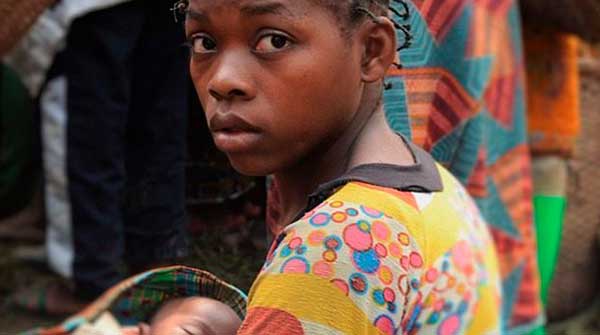Colonialism in Africa is coming back to haunt the West as it trolls Africa’s resources to help transition to a renewable energy future
 Thirty years ago, I went to Kinshasa, the capital of Zaïre (now the Democratic Republic of the Congo) on a two-year work contract. While there, I heard, numerous times and in various forms, the comment, “You are not like other white people.”
Thirty years ago, I went to Kinshasa, the capital of Zaïre (now the Democratic Republic of the Congo) on a two-year work contract. While there, I heard, numerous times and in various forms, the comment, “You are not like other white people.”
This made me a bit uncomfortable, and I honestly did not understand what it meant. While I was fluent in the French colonial language, I really struggled to speak and understand the local language, Lingala. I knew very little about the culture of the country or the customs of its people. I knew how to teach and gladly shared my knowledge, but I did not always understand how these ideas could be applied to the context in which I was working.
What I did know was that I enjoyed working with the Congolese. I enjoyed their food, how they smiled at me patiently, and how they made me feel welcome. I was awestricken by how hard the people worked, their dedication to their families, and how they were able to get by despite the most difficult of circumstances.
 |
| Related Stories |
| My Christmas in Zaire was something special
|
| Elizabeth II had the poise to navigate the cesspool of colonialism
|
| Website offers global hub for research on decolonization, anti-racism
|
I also found my Congolese coworkers very easy to collaborate with. They were never offended by my silly questions, and it was easy to build an atmosphere of mutual respect within the workplace.
Wasn’t I living by the basic principles of cross-cultural interaction? Why was I so different from other white people?
Admittedly, I had gone to Zaïre without knowing a great deal about the history of the region. Perhaps I wanted to form my own conclusions rather than adopt the views of others. At the time, there were very few books written about the Congo by Congolese writers.
When I returned to Canada, I really missed the DRC. I began to learn as much as I could about the history of the region, and now, I was able to contrast what I read with what I had experienced.
It became very clear to me that my Congolese friends were correct. I was not like other white people. What is natural and logical was not and still is not the practice of Europeans, Americans, and Canadians on the African continent. The truth of the exploitation of Africa and the African response to it is best summarized in a recent discourse by the renowned Zambian journalist Dr. Fred M’membe.
“A country that has toppled so many governments in Africa, that has led so many coups in Africa … a country that has killed so many of our leaders in Africa … a country that has been built on brutal force, on the enslavement of other human beings, on the humiliation of Africans, the exploitation of Africans, the plunder of Africa, today is coming to teach us about democracy. If you have no respect for the dignity of others, if you have no respect for the sovereignty of other countries, you cannot claim to be a champion of democracy.”
While M’membe’s comments were directed at the United States, it is clear that what he said is also true of France, Great Britain, Portugal, and Belgium. His statements explain why these countries are losing influence on the continent and why African leaders are looking elsewhere to build alliances.
The resources of the African continent are extremely valuable, and this will become even more so as we transition to renewable energy. China appears to be offering Africans a means by which they will finally benefit from their own resources, though we have yet to see if this is true.
Western colonizers and neo-colonizers have been quite unreasonable in their dealings with Africans. They now face a choice. Do they deal honestly with their crimes against humanity and work to regain the trust that they have lost? Will they treat Africans with respect, or will they get left behind as the world moves forward?
Gerry Chidiac specializes in languages, genocide studies and works with at-risk students. He is the recipient of an award from the Vancouver Holocaust Education Centre for excellence in teaching about the Holocaust.
For interview requests, click here.
The opinions expressed by our columnists and contributors are theirs alone and do not inherently or expressly reflect the views of our publication.
© Troy Media
Troy Media is an editorial content provider to media outlets and its own hosted community news outlets across Canada.

